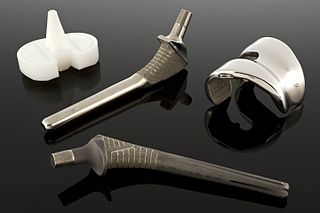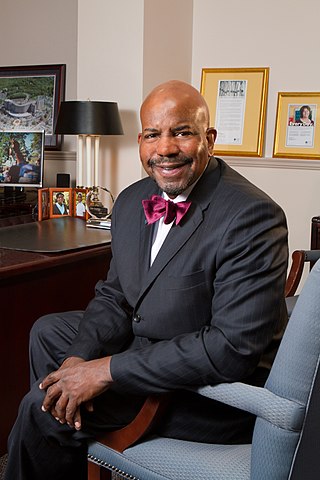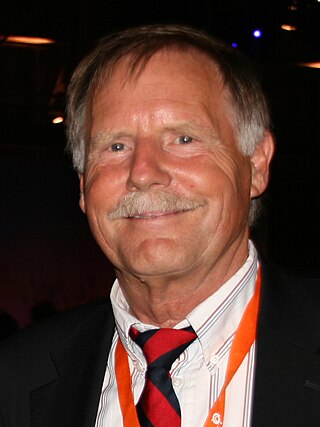
Biomedical engineering (BME) or medical engineering is the application of engineering principles and design concepts to medicine and biology for healthcare applications. BME is also traditionally logical sciences to advance health care treatment, including diagnosis, monitoring, and therapy. Also included under the scope of a biomedical engineer is the management of current medical equipment in hospitals while adhering to relevant industry standards. This involves procurement, routine testing, preventive maintenance, and making equipment recommendations, a role also known as a Biomedical Equipment Technician (BMET) or as a clinical engineer.

A biomaterial is a substance that has been engineered to interact with biological systems for a medical purpose – either a therapeutic or a diagnostic one. The corresponding field of study, called biomaterials science or biomaterials engineering, is about fifty years old. It has experienced steady growth over its history, with many companies investing large amounts of money into the development of new products. Biomaterials science encompasses elements of medicine, biology, chemistry, tissue engineering and materials science.

The American Ceramic Society (ACerS) is a nonprofit organization of professionals for the ceramics community, with a focus on scientific research, emerging technologies, and applications in which ceramic materials are an element. ACerS is located in Westerville, Ohio.

Cato T. Laurencin FREng SLMH is an American engineer, physician, scientist, innovator and a University Professor of the University of Connecticut.

Clemens A. van Blitterswijk is a Dutch tissue engineer who contributed to the use of biomaterials to heal bone injuries, especially using osteoinductive ceramics. In collaboration with Jan de Boer and others, he has contributed to screening microtextures to study cell-biomaterial interactions, an approach termed materiomics.

Klaas de Groot was a Dutch bioengineer. He worked as professor at Leiden University and the University of Twente.

Nicholas (Nikolaos) A. Peppas is a chemical and biomedical engineer whose leadership in biomaterials science and engineering, drug delivery, bionanotechnology, pharmaceutical sciences, chemical and polymer engineering has provided seminal foundations based on the physics and mathematical theories of nanoscale, macromolecular processes and drug/protein transport and has led to numerous biomedical products or devices.

The Journal of Materials Science: Materials in Medicine is a peer-reviewed scientific journal published by Springer Science+Business Media. It is an offshoot of the Journal of Materials Science, focusing specifically on materials in medicine and dentistry. The founding editor in chief was William Bonfield; the current editor-in-chief is Luigi Ambrosio.
Kristi S. Anseth is the Tisone Distinguished Professor of Chemical and Biological Engineering, an Associate Professor of Surgery, and a Howard Hughes Medical Investigator at the University of Colorado at Boulder. Her main research interests are the design of synthetic biomaterials using hydrogels, tissue engineering, and regenerative medicine.

Rui Luís Reis is a Portuguese scientist known for his research in tissue engineering, regenerative medicine, biomaterials, biomimetics, stem cells, and biodegradable polymers.

Aldo Roberto Boccaccini is a nuclear engineer and material scientist. He is currently a Professor of Biomaterials and Head of the Institute of Biomaterials at the Department of Materials Science and Engineering, University of Erlangen-Nuremberg, Erlangen, Germany.
Prof. Robert Geoffrey "Geoff" Richards FLSW FBSE FIOR FORS FTERM is the Executive Director Research & Development for the AO Foundation and director of AO Research Institute Davos at the AO Foundation. He is a Fellow of the Learned Society of Wales (FLSW), Fellow of Biomaterial Science and Engineering (FBSE), Fellow of International Orthopaedic Research (FIOR), Fellow of the Orthopaedic Research Society and honorary Fellow Aberystwyth University. He is co-founder and Editor-in-Chief of the eCM Open Access Journal, arguably the first online open access journal in the world.

Biomaterials Science is a peer-reviewed scientific journal that explores the underlying science behind the function, interactions and design of biomaterials. It is published by the Royal Society of Chemistry. The current editor-in-chief is Jianjun Cheng, while the executive editor is Maria Southall.
Thomas J. Webster is an American biomedical engineer, researcher, and entrepreneur. Throughout his over 25-year academic career, his research group has produced several books and book chapters. He has over 1350 publications and has an H-index of 118.
Sanjukta Deb is a British professor of biomaterials science at the Centre for Oral, Clinical & Translational Sciences at King's College London (KCL), United Kingdom. She joined KCL in 1996.
Elizabeth Cosgriff-Hernandez is an American biomedical engineer who is a professor at the University of Texas at Austin. Her work involves the development of polymeric biomaterials for medical devices and tissue regeneration. She is a co-founder of Rhythio Medical, on the scientific advisory board of ECM Biosurgery, and a consultant to several companies on biostability evaluation of medical devices. Dr. Cosgriff-Hernandez is an associate editor of the Journal of Materials Chemistry B and Fellow of the International Union of Societies for Biomaterials Science and Engineering, Biomedical Engineering Society, Tissue Engineering and Regenerative Medicine International Society, American Chemical Society Division of Polymeric Materials: Science and Engineering, Royal Society of Chemistry, and the American Institute for Medical and Biological Engineering.
Jeffrey Alan Hubbell is an American bioengineer working immunoengineering. His research has focused on topics from physical biology, biomaterials, regenerative medicine, and translational immunology.
Carole Celia Perry is a British chemist who is a professor at Nottingham Trent University. Her research investigates materials and physical chemistry, and the development of biomaterials for improving human health.
Mohan Jayantha Edirisinghe is a biomaterials engineer who is the Bonfield Chair of Biomaterials in the Department of Mechanical Engineering at University College London. Edirisinghe studies new materials forming methodologies, with a focus on the development of new biostructures. He was appointed an Order of the British Empire in the 2021 New Year Honours for his services to Biomedical Engineering.
Ankur Singh is an Indian-American biomedical engineer and scientist whose research focuses on engineering immune system. He is a Carl Ring Family Endowed Professor at Georgia Institute of Technology in the George W. Woodruff School of Mechanical Engineering and Wallace H. Coulter Department of Biomedical Engineering. He serves as the Director of the Center for Immunoengineering at Georgia Tech.











